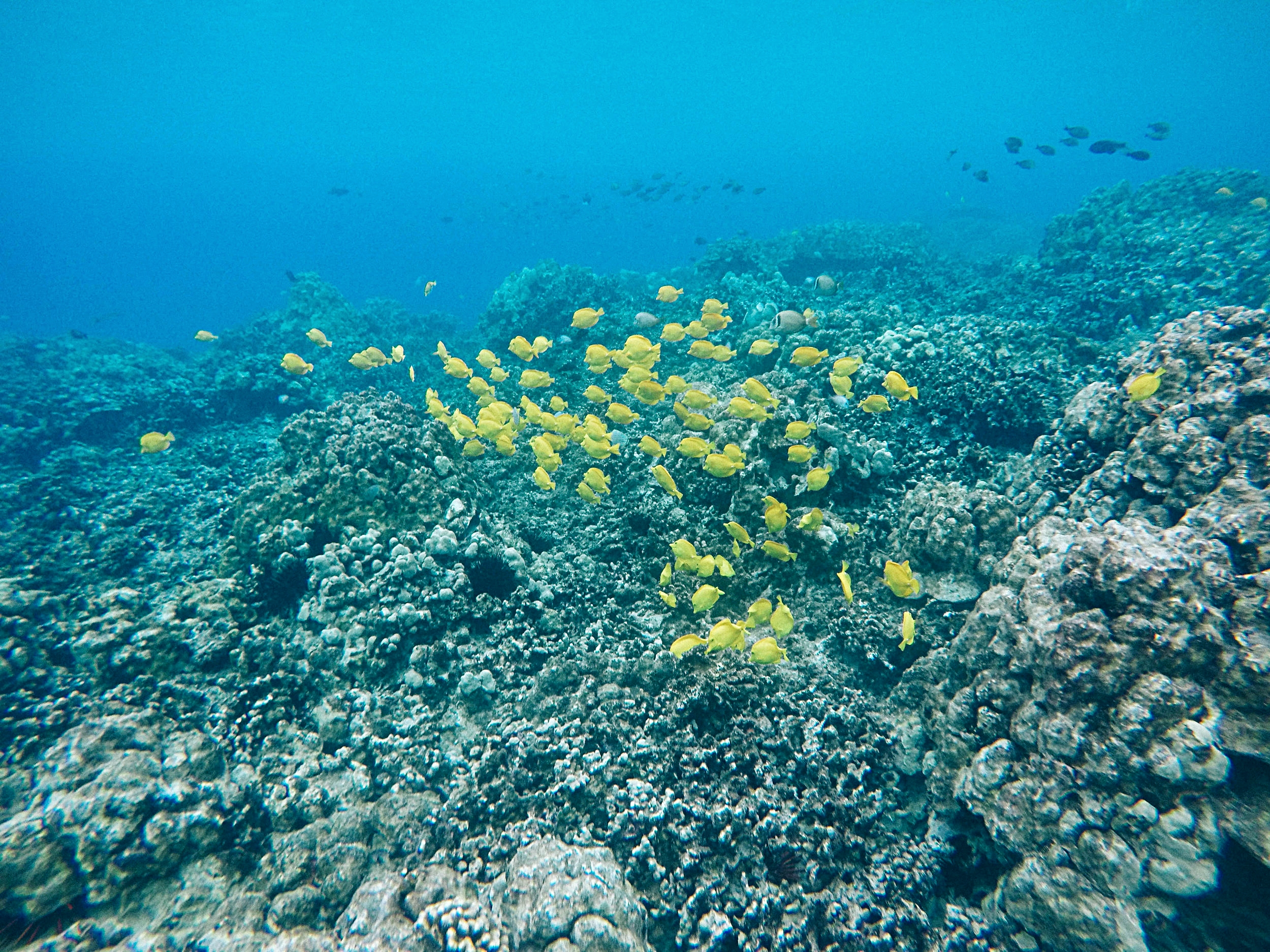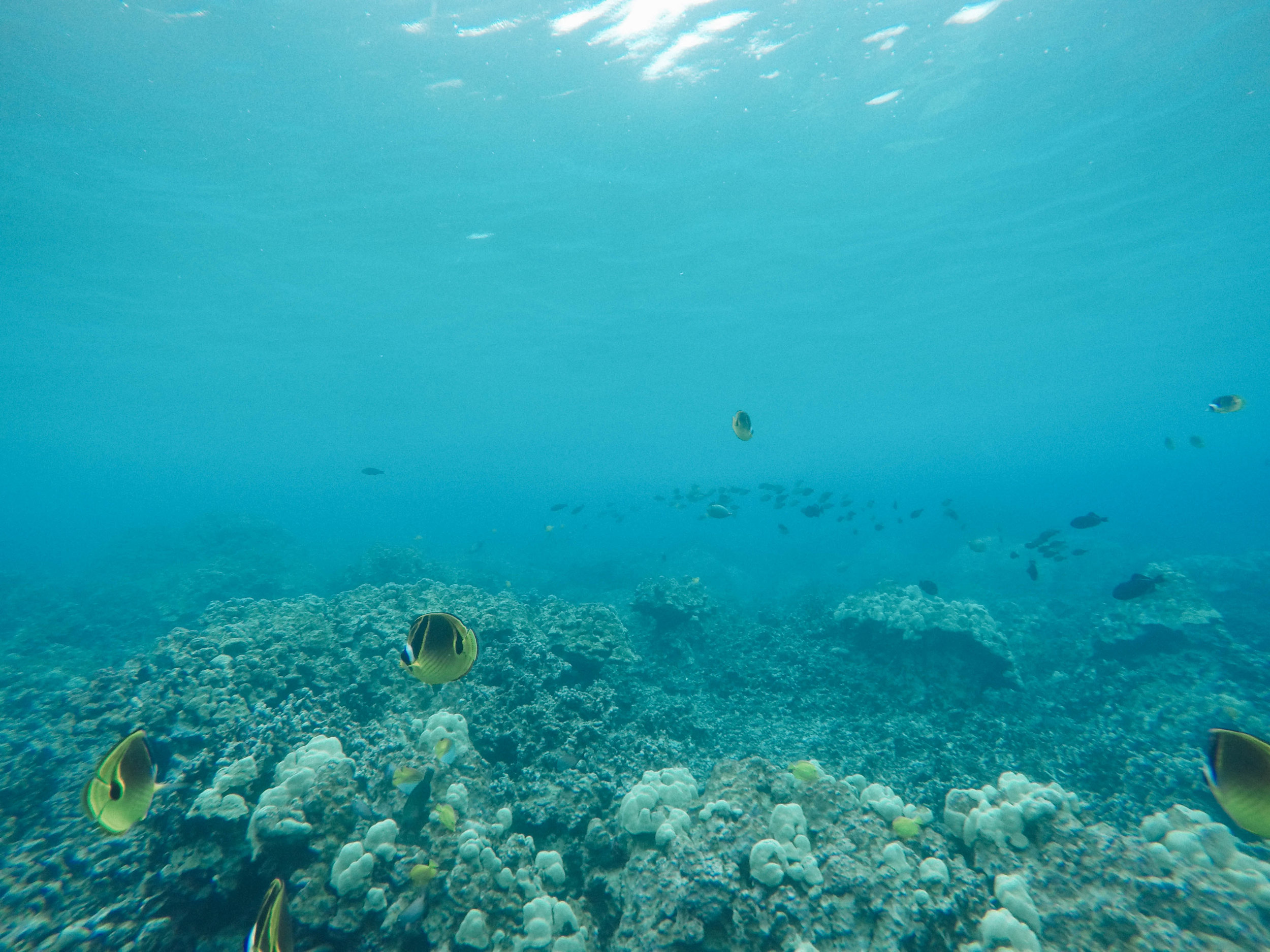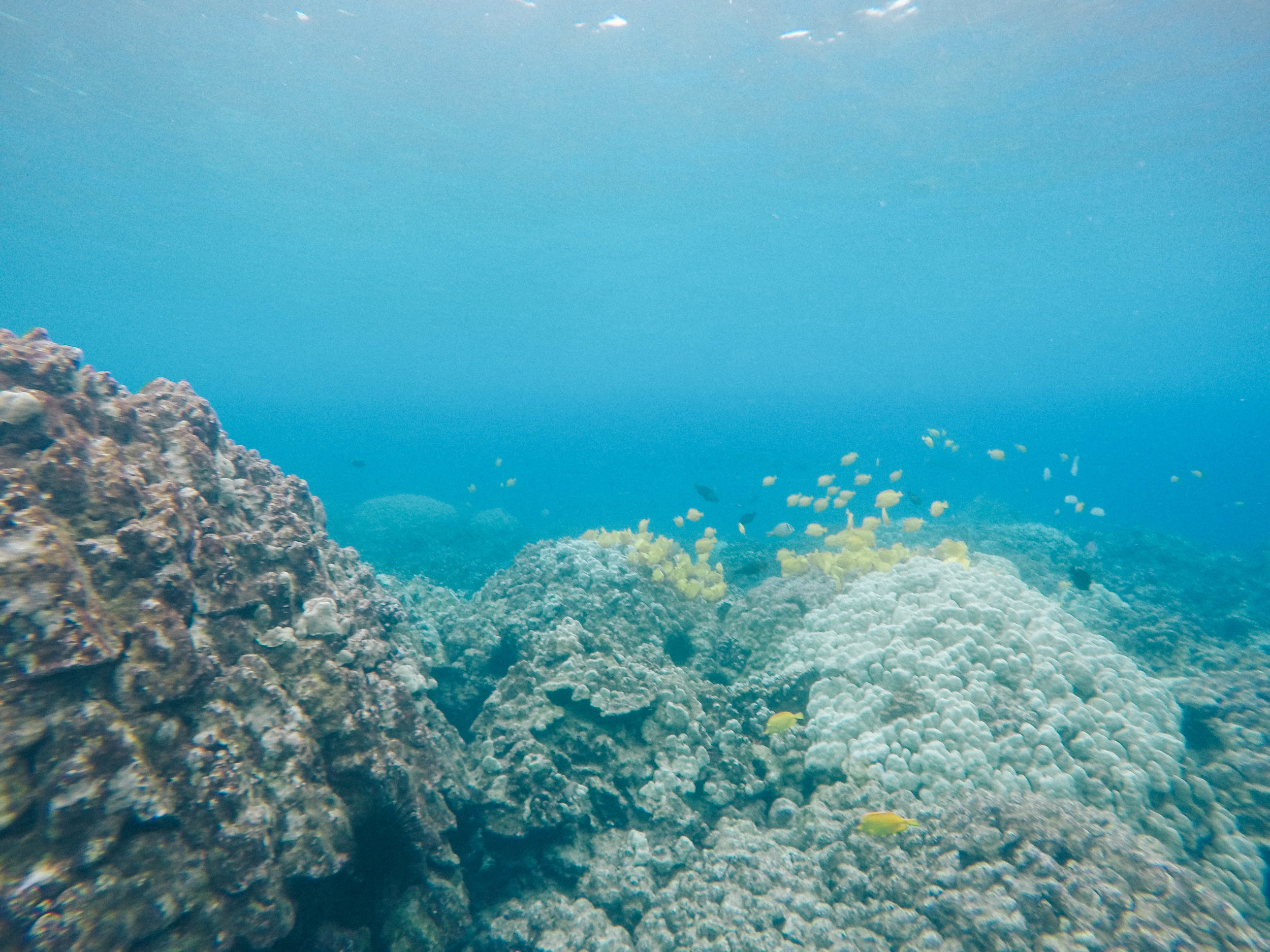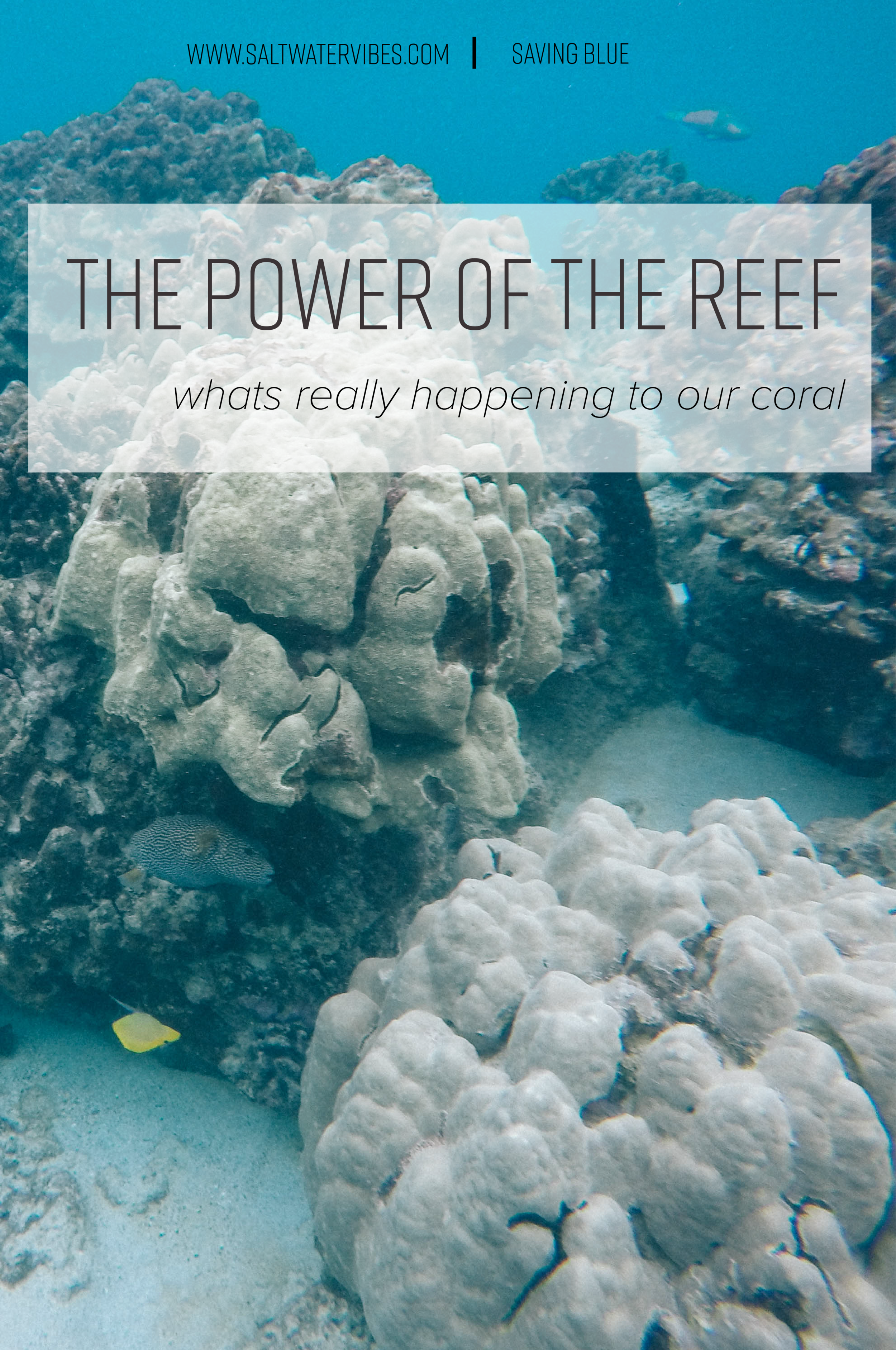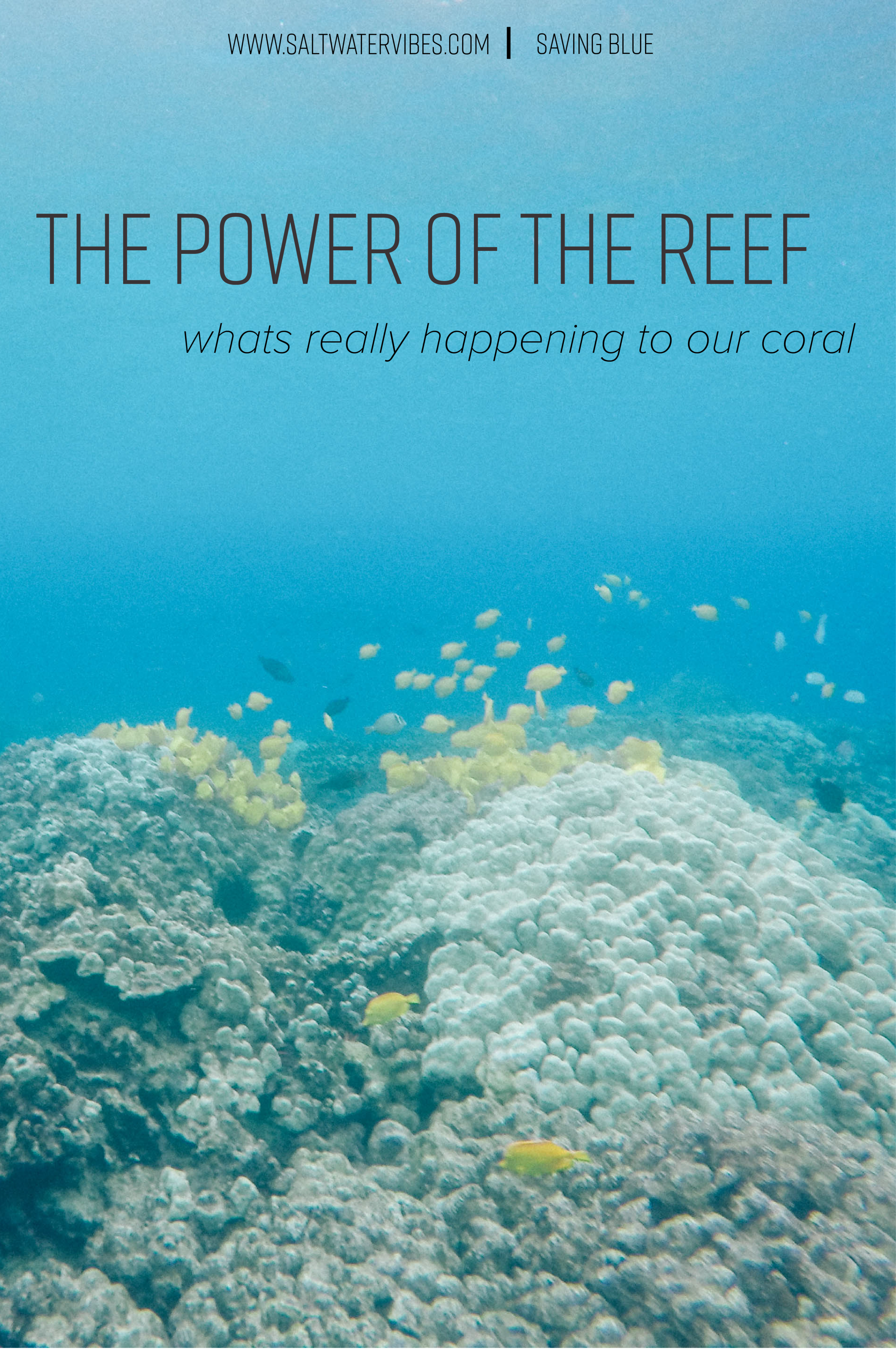Knowing: Coral Reefs
The Power of the Reef
Welcome back to part one of our second three part series on environmental issues in our oceans. Each topic lasts three weeks and will be separated by the subject of Knowing, Caring and Change. Our oceans need our help if we want to keep exploring, enjoying and existing!
“In the end we conserve only what we love; we will love only what we understand; and we will only understand what we are taught.” ~Baba Dioum, 1986
Coral reefs: the city, the rainforest, the heart of the underwater world of our planet. While reefs take up less than one quarter of one percent of the ocean floors, they are home to at least 25% of all marine life. Essentially, that's two million species of marine life that are found on, in or around coral. Coral reefs are symbolic for the color, health and life of our oceans...and yet, they are rapidly disappearing.
The effects of climate change have recently appeared on our surfaces. However, the real damage is occurring in our waters as global warming has begun to take it’s toll on our reefs and ocean life. Specifically, scientists claim that a phenomenon called “coral bleaching” could completely wipe out 90% of all coral reefs by the year 2050. The loss of such a massive and vital part of the oceanic ecosystem will undoubtedly result in a struggle for life; Not only for marine life who directly depend on the reef but also for those who depend upon the inhabitants of the coral reefs. The death of our reefs will touch every part of the ecosystem, including us.
What is a Coral Reef?
While this question seems simple, not many people actually know what a coral is or even why it’s important. A coral is a living animal, classified as a marine invertebrate. Specifically, each coral is called a polyp and these corals happen to grow and live on the calcium carbonate of their exoskeletons. After centuries, these corals grow until they become massive features, otherwise known as reefs. Similar to major cities, these reefs serve as hubs for all types of marine life, providing shelter, food and ultimately a home to many. In part two of this series we will explore the critical importance of these reefs to not only our oceans but also to our daily lives.
Coral Bleaching:
One of the most major threats to our reefs is the recent phenomenon called Global Coral Bleaching. Many scientists argue that coral bleaching events taking place around the world can be ‘considered as one of the most visual indicators of climate change.’
Coral bleaching occurs when a coral expels the algae living within its tissues due to stress caused by a major change in it’s environment. This change could be anything from light to pollution, but more often than not, the culprit is rising ocean temperatures. In fact, scientists now believe that 93% of climate change heat is absorbed by the ocean. The algae living in corals, provide both food and color to the coral. When it is expelled, the coral turns a ghastly white color, hence the term coral "bleaching”. If the coral is not able to reabsorb the algae, it will die.
Image Source The Ocean Agency / XL Catlin Seaview Survey / Richard Vevers
In October of 2015 the deadliest mass global coral bleaching event began. Unfortunately today the event continues, marking it as the longest recorded coral bleach in Earth’s history. Below you can see imagery captured by The Ocean Agency Catlin Seaview Survey, which seeks to capture coral reefs around the world before and after major heat waves hit causing widespread bleaching. To put it into perspective of the 1400 miles of Australia’s Great Barrier Reef, close to 900 miles of it have experienced bleaching in the past two years. Sadly, much of the the Great Barrier Reef and most others, will not survive the rising temperatures in our oceans.
Image Source The Ocean Agency / XL Catlin Seaview Survey / Richard Vevers
Coral reefs are a powerful and vastly expansive part of our ocean’s ecosystem. If we lose the reefs, the ocean as we know it will follow quickly behind it. From marine life, to our economy, to our individual health, we need our reefs.
Join Saving Blue next Wednesday for Part 2, Caring: Coral Reefs, to discover why we must care about the survival of these silent but beautiful animals.



